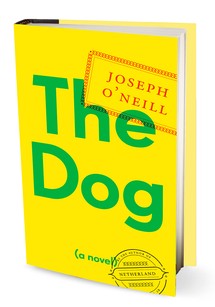The Dog
By Joseph O'Neill
256 pages;
Pantheon
The central figure in Joseph O'Neill's laconic
modern fable The Dog (Pantheon) has much in common with the antihero of
the author's acclaimed 2008 novel, Netherland. In
that book, the main character is a banker estranged from his wife and
disconnected from his city. Here, the unnamed protagonist is a newly
single Manhattan lawyer whose romantic woes have so traumatized him that
he believes he's been "seen through—seen through all the way
into my odious male nucleus." Feeling alienated on his home turf, he
opts for self-exile, accepting a position as wealth manager and "family
trustee" for an outrageously rich college friend in Dubai, where he
takes up residence in a luxurious but soulless apartment complex called
the Situation. There, he spends much of his time submitting to the
ministrations of his massage chair, the Pasha Royale X400™,
only gradually awakening to the spectacular emptiness of his job, which
consists largely of approving documents so meaningless that he orders a
set of rubber stamps and embossers to make the work seem more
significant.
Dubai's weird mix of old and new, high
and low, includes the world's tallest building and a stateless class of
people known as bidoons. Hiring a
bidoon named Ali as his assistant, the narrator
perceives how radically their prospects differ: "He is never going to be
one of the Uncompromising Few. He will always be one of the
Compromising Many." But the narrator also begins to comprehend that even
the lowest of the low may not be as badly off as, say, Alain, the pudgy
teenage member of the family whose weigh-ins he's ordered to
supervise.
How Alain and Ali are treated leads one to
wonder who exactly the "dog" of the title is: Someone others look down
on? A person, like the narrator, who's forced to carry out unappealing
tasks? Or is it the proverbial shaggy dog, meaning there is no intended
point or moral to this book? If the latter, rest assured: Even though
O'Neill isn't drawing any clear conclusions, he has drawn a fine,
complex portrait of a modern-day soul in despair.
— Bethanne Patrick


